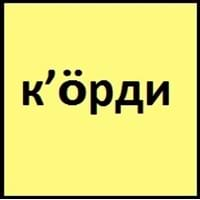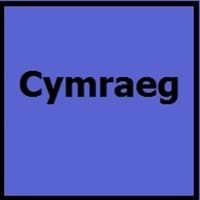Kurdish and Welsh
Countries
Iraq, Kurdistan
Wales
National Language
Azerbaijan, Georgia, Iran, Iraq, Syria, Turkey
Wales
Second Language
Not spoken in any of the countries
Not spoken in any of the countries
Speaking Continents
Middle East
Europe
Minority Language
Not spoken in any of the countries
Argentina, United Kingdom
Regulated By
Not Available
Welsh Language Commissioner
Interesting Facts
- The vocabulary in Kurdish is of Iranian origin.
- In the middle East, Kurdish is the fourth largest ethnic group.
- One of the Celtic language still spoken with great numbers of speakers is Welsh language.
- Welsh was evolved from British , which was spoken by ancient Britons.
Similar To
Farsi Language
English Language
Derived From
Not Available
British Language
Alphabets in
Kurdish-Alphabets.jpg#200
Welsh-Alphabets.jpg#200
Scripts
Arabic, Cyrillic, Latin
Latin
Writing Direction
Right-To-Left, Horizontal
Not Available
How Are You?
Tu çawa yî?
Sut ydych chi?
Good Night
Şev xweş
Nos da
Good Evening
Evare baş
Noswaith dda
Good Afternoon
Nee-wa-rowt bash
P'nawn da
Good Morning
Bayanit bash
Bore da
Please
Bê zehmet
os gwelwch yn dda
Sorry
Bibûre
Mae'n ddrwg gennym
I Love You
Ez te hez dikem
Dw i'n dy garu di
Excuse Me
Bê zehmet
Esgusodwch fi
Dialect 1
Northern Kurdish
Patagonian Welsh
Where They Speak
northern Iraq, northern Syria, northwest Iran, southeast Turkey
Argentina
Dialect 2
Central Kurdish
Y Wyndodeg
Where They Speak
Iraq, Kurdistan Province of western Iran
Gwynedd
How Many People Speak
Not Available
Dialect 3
Southern Kurdish
Y Bowyseg
Where They Speak
Eastern Iraq
Powys
How Many People Speak
Not Available
Speaking Population
Not Available
Native Name
Kurdí / کوردی / к’öрди
Cymraeg / Y Gymraeg
Alternative Names
Not Available
Cymraeg
French Name
kurde
gallois
German Name
Kurdisch
Kymrisch
Pronunciation
Not Available
[kəmˈrɑːɨɡ]
Ethnicity
Kurds
Welsh people
Origin
16th century CE
9th Century
Language Family
Indo-European Family
Indo-European Family
Subgroup
Indo-Iranian
Celtic
Branch
Not Available
Brythonic
Early Forms
Not Available
Common Brittonic, Old Welsh, Middle Welsh
Standard Forms
Kurdish
Welsh
Signed Forms
Not Available
Not Available
Scope
Macrolanguage
Individual
ISO 639 6
Not Available
Not Available
Glottocode
kurd1259
wels1247
Linguasphere
58-AAA-a
50-ABA
Language Type
Living
Historical
Language Linguistic Typology
Subject-Object-Verb
Verb-Subject-Object
Language Morphological Typology
Not Available
Fusional
All Kurdish and Welsh Dialects
Most languages have dialects where each dialect differ from other dialect with respect to grammar and vocabulary. Here you will get to know all Kurdish and Welsh dialects. Various dialects of Kurdish and Welsh language differ in their pronunciations and words. Dialects of Kurdish are spoken in different Kurdish Speaking Countries whereas Welsh Dialects are spoken in different Welsh speaking countries. Also the number of people speaking Kurdish vs Welsh Dialects varies from few thousands to many millions. Some of the Kurdish dialects include: Northern Kurdish, Central Kurdish. Welsh dialects include: Patagonian Welsh , Y Wyndodeg. Also learn about dialects in South American Languages and North American Languages.
Kurdish and Welsh Speaking population
Kurdish and Welsh speaking population is one of the factors based on which Kurdish and Welsh languages can be compared. The total count of Kurdish and Welsh Speaking population in percentage is also given. The percentage of people speaking Kurdish language is 0.31 % whereas the percentage of people speaking Welsh language is Not Available. When we compare the speaking population of any two languages we get to know which of two languages is more popular. Find more details about how many people speak Kurdish and Welsh on Kurdish vs Welsh where you will get native speakers, speaking population in percentage and native names.
Kurdish and Welsh Language Codes
Kurdish and Welsh language codes are used in those applications where using language names are tedious. Kurdish and Welsh Language Codes include all the international language codes, glottocodes and linguasphere.





